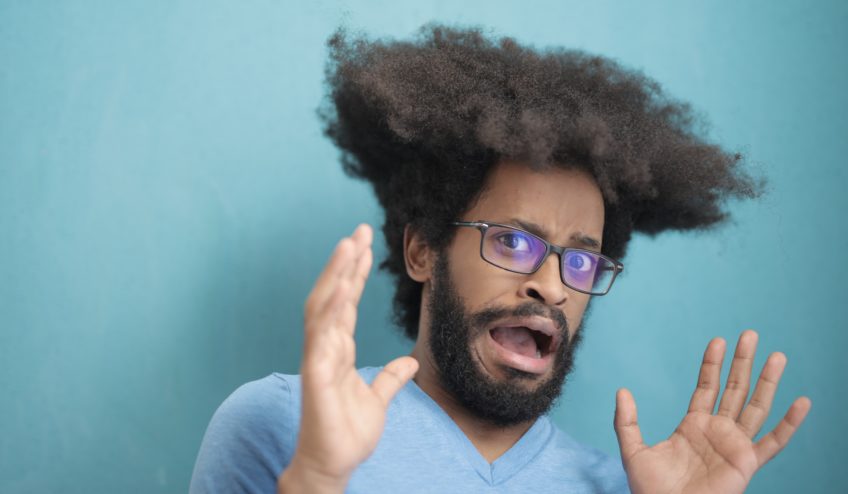Horror takes our everyday fears, focuses on one and magnifies it until we can no longer ignore it or hide. I used to hate horror as a genre, traumatised from that time I watched the opening scene of Scream 2 as a young teenager. But as I’ve got older, I’ve come to gravitate towards horror. In part because I think, of all movie genres, it has the most consistant and rich theological insight.
The Exorcist, that’s the one people normally choose right? And I can see why, it’s a great movie. Unsettling, disturbing, memorable. I think the Exorcist is so revered because it plays on some of the key fears that many of us experience in day to day life. What would happen if a child, my child, became different, ill, unlike themselves. The fear of the unknown, of not understanding what is happening, of not being able to find help.
The horror that is, the loss of innocence.
Many movies riff off this theme of the loss of innocence. The traditional horror movie (think Halloween, Friday 13th) played it that once a character engaged in sexual activity, they were as good as dead. They would be hunted by puritanical monsters, made to pay for their sins. In the movie series Saw, the villain Jigsaw does not choose his victims at random. He selects only those individuals that, in his view, have wasted their lives in some way. They are bad people, being punished for their actions. Rather than get away Scot-free, Jigsaw makes sure they get what they deserve. One of my personal favourites in recent years has been, ‘The killing of a sacred deer’ starring Colin Farrell and Nicole Kidman. In this movie we are exposed to a world similar to ours, but different. A world where everyone gets what they deserve, a world ruled by karma if you will. It is truly horrific. Do we get what we deserve? Should we? 2014’s IT follows and twists that concept that Halloween introduces and instead has a slow gradual consequence for the loss of innocence. A sense of dread sets in, by allowing the characters to live long after their sexual encounter (loss of innocence) they are forced to reckon the implications of it and the choices they have made and will need to make.
These themes are not new. Go read Genesis.
‘Doldrums, doldrums…eviler than the Devil’ exclaims Thomas Wake in Robert Eggers ‘The Lighthouse’. Set in a lighthouse in the 1890’s, two lighthouse keepers attempt to avoid the onset of madness on a stormy and foggy piece of rock in the rough ocean. The first sound we hear in the movie is a foghorn blast, you better get used to it. Its low, persistent moans can be heard in the background throughout, a signal perhaps, not just of the fog, but of the anxious thoughts always presenting underneath the veneer of the characters. It all leaves the viewer feeling hemmed in. Unable to break out of the fog and see the blue sky. Unable to break out of the blackness and find the hope. The Babadook is a movie that tackles similar themes. A story about a single mother struggling with grief and poor mental health. It starts dark and gets darker and darker. (There are a number of movies that hold as the villain a parent. The fear that those who are meant to look after us will actually cause us harm.) Back to the Babadook, this movie hinges on a moment when Amelia (the mother), in the midst of a rage is confronted by her six year old son Samuel who simply says ‘I love you, Mum, I always will.’ Will this introduction of love, break the darkness?
This is not a new theme. Go read…I don’t know like, the whole Bible, or 1 John if you’re tight on time.
What I think attracts me more and more to horror is that it consistently asks a question I’m often thinking about. Does death win? Does darkness conquer? Can we halt the violence? Can we escape?
The Texas Chainsaw Massacre pokes and probes at this question. Part of the movie’s terror is the fact that we cannot fully comprehend the murderous cannibal family and therefore are left grasping at straws to find a way out. Reason won’t do. How do you solve something when you have no idea how it started? It would all just be easier if there were rules to follow. In the Candyman remake of 2021, we are left to wrestle with questions over rules, fate, and free will. All the while being confronted with inescapable racism, classism and violence. Before ‘The Lighthouse’ Rober Eggers directed ‘The VVitch’. The folk horror tale set in the 1630s places us in a puritan family, where early on the eldest daughter is accused of being a witch. We as the viewers know she isn’t, or think we know. We have seen and know the things that have happened that other characters have missed. But we face another long lingering question. Do we live into the labels we are given? Is there a way to change how we are viewed, whether by family or society?
Does death win? Will racism end? Can violence be stopped? Can we escape or are we all just fated to repeat and live into the horror we have witnessed?
These themes are not new. Stories as old as humanity itself.
Theme photo by Andrea Piacquadio on Pexels

